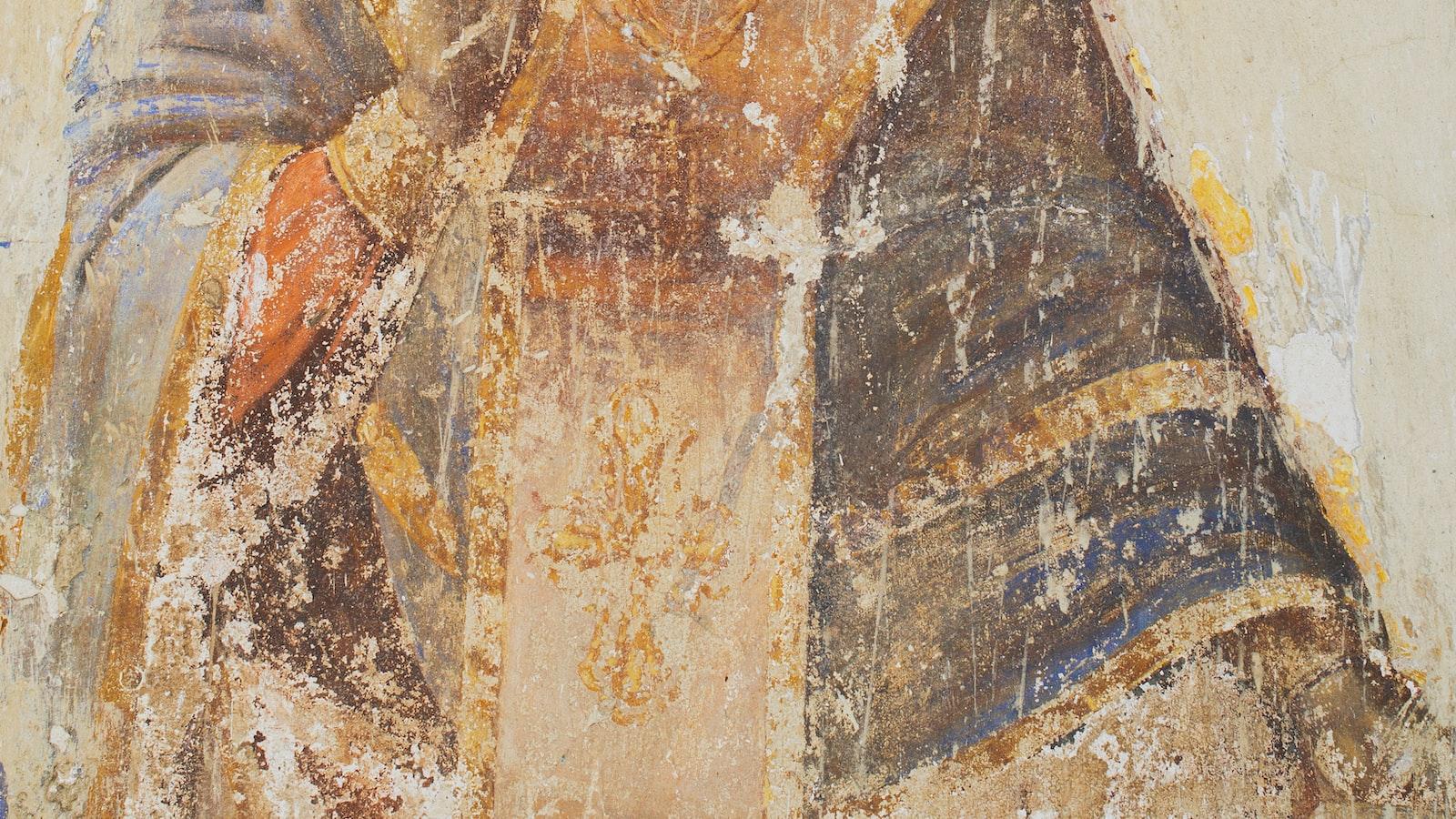Hey there! Today we’re delving into a fascinating topic – the biblical meaning of witchcraft. Now, you might be thinking, "Wait, isn’t witchcraft all about potions and broomsticks?" Well, in biblical terms, the concept takes on a different light. We’ll be exploring the origin, beliefs, and perceptions surrounding witchcraft in the Bible, all while maintaining a neutral tone. So, whether you’re a curious wanderer or seeking a deeper understanding, let’s embark on this intriguing journey together.
Common Misconceptions about Witchcraft in the Bible
Many people have misconceptions about witchcraft in the Bible, often associating it with dark magic or evil practices. However, it is important to understand the true biblical meaning of witchcraft before making assumptions. Here are some :
1. Witchcraft is always condemned in the Bible:
Contrary to popular belief, not all references to witchcraft in the Bible are negative. While some passages condemn witchcraft, there are also instances where it is mentioned in a neutral or even positive context. For example, in Exodus 22:18, the phrase “You shall not permit a sorceress to live” is often associated with a condemnation of witchcraft. However, the actual meaning behind this verse is debated among theologians, and it may refer to harmful magic or divination rather than all forms of witchcraft. It is important to approach biblical references to witchcraft with open-mindedness and careful study.
2. Witchcraft is always synonymous with the occult:
While witchcraft is sometimes associated with the occult and divination, it is not always synonymous with these practices. In the Bible, witchcraft can also refer to various forms of sorcery, magic, or even the ability to interpret signs and dreams, as seen with Joseph in the book of Genesis. It is important to avoid generalizations and to recognize that witchcraft in the Bible has a broad range of meanings, encompassing different cultural practices and beliefs.
3. All witches are portrayed as evil in the Bible:
Another common misconception is that all witches in the Bible are portrayed as evil or harmful. While there are instances where the Bible condemns sorcery and divination, there are also stories that depict witches in a more complex light. In the case of the Witch of Endor in 1 Samuel 28, she is summoned by King Saul to communicate with the deceased prophet Samuel. This story raises questions about the nature of witchcraft and the boundaries of communication between the spiritual and physical realms.
4. Modern witchcraft aligns with biblical witchcraft:
It is important to note that modern witchcraft, as practiced by Wiccans and other contemporary pagan traditions, is not necessarily aligned with the biblical understanding of witchcraft. In fact, many modern witches do not practice harmful magic or divination and instead focus on nature-based spirituality and personal empowerment. While there may be some similarities or inspirations drawn from ancient practices, it is crucial to distinguish between biblical witchcraft and the modern interpretation of witchcraft.

Understanding the Symbolism of Witchcraft in Biblical Texts
Throughout the pages of the Bible, witchcraft holds a significant symbolic meaning that goes beyond its literal definition. It represents the allure of temptation, the potential for evil, and the struggle between darkness and light. By delving deeper into the biblical meaning of witchcraft, we can gain a greater understanding of the profound messages conveyed within these sacred texts.
Witchcraft as Idolatry:
In biblical texts, witchcraft is often associated with idolatry, the worship of false gods or idols. Just as a sorceress uses her powers to manipulate and control, idolaters turn away from the true God and seek power and guidance from other sources. The symbolism here lies in the reminder that seeking fulfillment outside of God’s will can lead us astray and create a separation between mankind and the divine.The Battle of Good and Evil:
Witchcraft is frequently depicted as a force of darkness, drawing power from the supernatural realm. It serves as a stark contrast to God’s light and righteousness. This symbolism reminds us of the constant battle between good and evil, and the importance of staying on the path of righteousness. By embracing God’s teachings and rejecting the deceptive allure of witchcraft, we can overcome the challenges presented by the forces of darkness.Temptation and Deception:
Another key element of the biblical meaning of witchcraft is the temptation and deception it represents. Witches often entice and mislead with their enchanting spells, mirrors, and potions. This serves as a powerful metaphor for the temptations we encounter in our own lives. It warns us to be cautious and discerning, not allowing ourselves to be swayed by the deceptive promises of worldly desires that can lead us astray from God’s intended path for us.- Symbol of Human Weakness:
The symbolism of witchcraft can also be viewed as a reflection of human weakness and fallible nature. Just as witches in biblical texts succumb to their own desires and misuse their powers, it serves as a reminder that we too are susceptible to a dark path if we yield to our own weaknesses. This reinforces the importance of continually seeking God’s strength and guidance, acknowledging our own limitations, and relying on His grace to resist the allure of temptation.
By , we gain deeper insights into the messages conveyed within these sacred writings. It prompts us to reflect on our own spiritual journey, the choices we make, and the battles we face. Let us always remember that in God’s light and righteousness, we can overcome darkness and find the true meaning and purpose of our lives.
Exploring the Historical Context of Witchcraft in the Bible
The historical context of witchcraft in the Bible is a fascinating topic that invites us to dive into the mysterious world of ancient civilizations and their beliefs. The concept of witchcraft is mentioned numerous times throughout the Bible, and understanding its biblical meaning can shed light on the cultural and religious practices of the time.
One aspect to explore when examining the biblical meaning of witchcraft is its connection to paganism. In many ancient cultures, witchcraft was closely associated with worshiping multiple gods and practicing magic rituals. The Bible often warns against engaging in these practices, depicting witchcraft as a form of idolatry and rebellion against God.
Another interesting point to consider is the portrayal of witchcraft in the Bible as a means of manipulation and deception. In several instances, individuals accused of witchcraft are described as using their supernatural abilities to deceive and harm others. This portrayal reflects the fear and suspicion that surrounded the practice of witchcraft in biblical times.
Furthermore, the biblical meaning of witchcraft also delves into the consequences and punishments associated with it. Witchcraft was considered a capital offense in ancient Israel, and those found guilty of practicing it were often put to death. These severe penalties demonstrate the high regard the Bible placed on deterring people from engaging in witchcraft.

Unveiling Hidden Spiritual Lessons in Bible Verses about Witchcraft
When it comes to understanding the biblical meaning of witchcraft, there are hidden spiritual lessons waiting to be unveiled. The Bible addresses the topic of witchcraft in various verses, offering insights that go beyond a surface-level understanding. By delving into these verses, we can gain a deeper understanding of the spiritual implications of witchcraft and how it relates to our lives today.
1. Witchcraft as Rebellion:
Biblical verses about witchcraft often portray it as an act of rebellion against God. It is a blatant disregard for His authority and an attempt to seek power outside of His divine order. This serves as a reminder that our alignment should always be with God’s will, not with any form of occult or dark practices. The story of King Saul’s consultation with the witch of Endor in 1 Samuel 28 serves as a prime example of the consequences of engaging in witchcraft out of rebellion.
2. Witchcraft as Manipulation:
Another significant aspect of witchcraft in the Bible is its association with manipulative practices. Witchcraft involves attempts to control and influence others through supernatural means. This highlights the importance of integrity and respect for free will. It serves as a reminder that relying on manipulation and dark arts to achieve desired outcomes is not aligned with God’s teachings.
3. Witchcraft as Idolatry:
The Bible also links witchcraft to idolatry, where individuals place their trust and devotion in something other than God. This reminds us of the dangers of putting our faith in anything or anyone other than the Almighty. By seeking power or guidance from sources outside of God, we risk diverting our attention and losing sight of the true source of spiritual nourishment.
4. Overcoming Witchcraft through Faith:
Ultimately, the Bible teaches us that faith in God and His Word can overcome the influence of witchcraft. By staying rooted in our belief and actively seeking a deeper understanding of His teachings, we can resist the temptations of witchcraft and protect ourselves from its deceptive allure.
So, there you have it! We’ve delved into the fascinating world of witchcraft and explored its biblical meaning. Hopefully, this article has shed some light on this often misunderstood topic.
While there are various interpretations of the biblical stance on witchcraft, it’s essential to remain objective and open-minded when discussing such matters. It’s important to understand that beliefs and perspectives differ across different faiths and individuals.
Regardless of our personal views, it’s crucial to respect the diversity of belief systems and engage in meaningful conversations that promote understanding and acceptance. After all, conversations that bridge gaps and foster understanding are what truly bring us together as a society.
Whether you view witchcraft as inherently evil, rooted in ancient practices, or simply as an intriguing part of history, it’s essential to approach the topic with an open mind. Remember, the world is a tapestry of diverse beliefs, and each thread contributes to its richness.
So, as we wrap up this exploration, let’s continue to learn, ask questions, and appreciate the multifaceted nature of humanity. By embracing our differences and seeking knowledge, we can move closer to a world where our collective understanding helps to foster empathy, compassion, and unity.
It’s been a fascinating journey, and I hope this article has given you a fresh perspective on the biblical meaning of witchcraft. Until our next exploration together, keep an open mind, seek wisdom, and embrace the wonders of this intricate world we inhabit.
